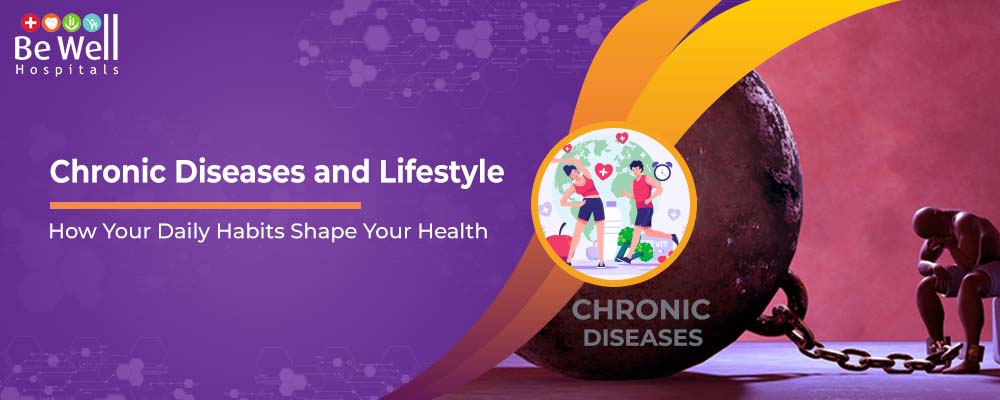Chronic Diseases and Lifestyle: How Your Daily Habits Shape Your Health

Introduction
Chronic diseases have become a growing concern in today’s world, affecting millions of people and significantly impacting their quality of life. These long-term health conditions develop gradually and often result from a combination of genetic, environmental, and lifestyle factors. Chronic diseases include a wide range of illnesses such as diabetes, heart disease, hypertension, obesity, cancer, and respiratory disorders, many of which are influenced by daily habits like diet, exercise, stress levels, and sleep patterns. With the increasing prevalence of lifestyle-related diseases, understanding their causes, risks, and prevention methods is more important than ever. Left unmanaged, chronic diseases can lead to severe complications, reducing life expectancy and overall well-being. However, with the right awareness and proactive measures, individuals can take control of their health and minimize the risk of developing these conditions. In this blog, we explore the different types of chronic diseases, their impact, and how small lifestyle changes can make a big difference in long-term health.
The Role of Lifestyle in Chronic Disease Development
Lifestyle choices play a pivotal role in determining long-term health. By making informed decisions and adopting healthier routines, individuals can reduce the likelihood of developing long-term health conditions.
Adopting a balanced diet, regular exercise, stress management, and proper sleep habits can significantly reduce the likelihood of developing long-term health issues.
Key Lifestyle Factors Affecting Chronic Diseases
A healthy lifestyle is essential in preventing and managing chronic diseases. Several key factors influence long-term health, and understanding them can help individuals make informed choices for better well-being.
Making small, consistent changes leads to long-term health benefits and a better quality of life.
Healthy Lifestyle Strategies for Disease Prevention
Adopting healthy lifestyle habits plays a crucial role in preventing chronic diseases and improving overall well-being. Here are key strategies to maintain optimal health:
By implementing these healthy lifestyle strategies, individuals can proactively reduce the risk of chronic diseases, enhance longevity, and enjoy a healthier, more fulfilling life.
Overcoming Challenges in Adopting a Healthy Lifestyle
Adopting a healthy lifestyle can be challenging, but with the right mindset and strategies, it’s possible to make lasting changes. Here are key steps to overcome common barriers:
By tackling these challenges with patience and persistence, adopting a healthy lifestyle becomes achievable, leading to long-term benefits for your health and well-being.
Conclusion
The power of lifestyle choices in shaping health outcomes cannot be underestimated. By making conscious, proactive decisions about diet, exercise, and stress management, we have the potential to prevent chronic diseases and improve overall well-being. It's never too late to take charge of your health and adopt healthier habits that promote longevity. Small changes, when sustained over time, can yield significant benefits, making long-term health a priority.
Prioritize preventive care and embrace healthier living for a future free from chronic illness. For personalized advice and support on your journey to better health, visit your nearest Be Well Hospitals or call 9698 300 300 to book an appointment with our experts.
